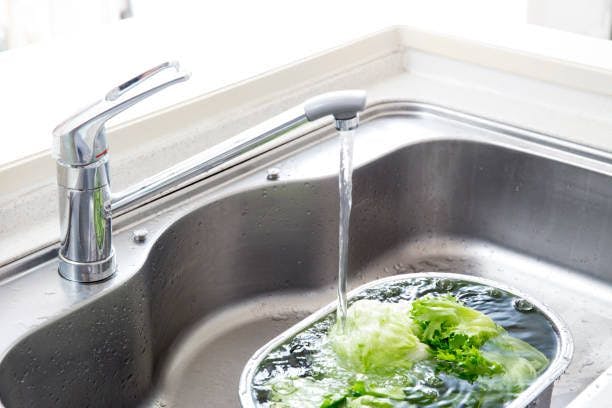Published May 16, 2024
Whole Home Well Water Filters: Are They Suitable for City Water?
It is impossible to understate the significance of efficient water filtration systems at a time when access to clean and secure drinking water is essential. Having access to clean water is essential to preserving health and well-being, regardless of whether you live in a busy city or a tranquil rural area. This brings up the question of whether whole-house well water filters are appropriate for use with water from the city.
Though historically connected to rural regions and well water supplies, these all-inclusive filtration systems are becoming more and more attractive choices for city people. In-depth discussions about whole home well water filters, including how well they work to purify city water and typical issues, are covered in this article.
Understanding whole home well water filters
Understanding the advantages and workings of whole-home well water filters is essential before beginning to apply them to city water. As the name suggests, these systems are made to filter water at the entrance to a home, ensuring that pure, pollutant-free water emerges from each tap. As opposed to conventional place-of-purpose filters, which just clean water at determined outlets, entire home systems offer exhaustive filtration for a family's water sources, including machines, showers, and fixtures.
By keeping away from harm and mineral development, this sweeping technique not only works on the nature of water for cooking and drinking but also builds the assistance life of plumbing fixtures and machines.
Mechanism of Action
To improve the quality of the water and eliminate contaminants, the best whole-house water filters use a multi-stage filtration process. These systems usually include silt, rust, and sediment filters to catch larger particles; next, activated carbon filters are added to absorb smells, chlorine, and organic chemicals. Furthermore, certain advanced designs might incorporate more filtering mediums, such as KDF or catalytic carbon, that are designed to target particular impurities like volatile organic compounds (VOCs) and heavy metals. To address the problem of hard water filters, it is possible to incorporate water-softening systems that eliminate excessive minerals such as calcium and potassium. This prevents the accumulation of scale and extends the life of equipment and plumbing systems.
Suitability for city water: debunking the myth
The idea that whole-house water filters are only suitable for well water sources is one of the most prevalent misunderstandings about them. These systems are common in rural areas where well water is the main source of water, although their usefulness is not limited to those conditions.
In actuality, a lot of contemporary whole-home filtration systems come with cutting-edge technology that enables them to handle municipal water just as well. The secret is to comprehend the distinct makeup of city water and modify the filtration system to target particular pollutants and issues.
Addressing City Water Contaminants
Before city water is delivered to customers, it is put through a rigorous treatment process to ensure that it complies with regulations. It is mostly obtained from municipal supplies. Notwithstanding these endeavors, minute quantities of pollutants can endure, hence presenting possible health hazards. Chlorine, chloramines, fluoride, heavy metals, medicines, and industrial pollutants are often detected as impurities in city water.
Although chlorine and chlorine dioxide are used in municipal treatment plants to purify water, long-term exposure to these chemicals can be harmful to health and give water a disagreeable taste and odor. Heavy metals and other contaminants may also be present in city water due to conditions in the environment and aged equipment.
The Role of Whole-Home Filters
Well, water filters for the entire house are ideally positioned to handle the wide range of impurities present in municipal water. These systems efficiently remove pollutants like heavy metals, chlorine, chloramines, and volatile organic compounds (VOCs) from water, leaving behind pure, delicious-tasting water that may be used right from the pipe. Moreover, whole home filtration's all-inclusive design guarantees that every household water source—including showers and appliances—is shielded from impurities, protecting not just drinking water but also general health and well-being.
Factors to consider when choosing a whole home filter for city water
City people can undoubtedly benefit from whole-home well water filters, but choosing the correct system necessitates carefully weighing several aspects to assure optimal performance and compliance with municipal water supplies. The following are some important things to remember:
Analysis of Water Quality
To determine whether specific toxins are present in the municipal water supply, it is imperative to carry out a thorough water quality survey before investing in a complete home filtration system. With the use of this data, the proper filtration methods and media will be identified to successfully handle the special makeup of municipal water.
Filtration Capacity and Flow Rate
To make sure the system can sufficiently fulfill the needs of the home for water usage, take into account the filtration capacity and flow rate of the system. Larger homes or those with high water consumption rates benefit greatly from systems with bigger capacity and flow rates, which guarantee a steady supply of water and constant water pressure.
Identification and Commitment
To make sure whole home filtration systems fulfill strict quality and performance standards, look for those that have been certified by respectable third-party organizations, such as the Water Quality Association or the NSF (National Sanitation Foundation). Additionally, make sure that the necessary rules and guidelines published by regional authorities and regulatory agencies are being followed.
Maintenance Requirements
Examine the filtration system's maintenance demands, such as the frequency of filter replacements and continuous servicing requirements. For hassle-free operation and long-term cost-effectiveness, choose systems with easily accessible replacement filters and maintenance practices.
Cost and Budgetary Considerations
Even though whole-house filtration systems are a substantial investment in household health and water purity, it's important to take financial limits and long-term cost consequences into account. To compare the overall cost-effectiveness of various filtration systems, take into account the initial expenditures, continuing maintenance costs, and potential savings from a decreased dependency on bottled water or appliance repairs.
Final thoughts
whole house water filters are ideal for applications involving city water, as they are both very beneficial and appropriate. Through the use of cutting-edge filtration technology and adaptable media choices, these systems provide unmatched efficacy in eliminating impurities and improving water quality across the entire household.
Whether you're worried about heavy metals, chlorine, chloramines, or additional pollutants that are frequently present in city water, a whole-house filtration system offers a complete solution to protect your health and well-being. Homeowners can choose the ideal whole-house filter for their unique requirements by taking into account variables including water quality analysis, filtering capacity, certification, maintenance requirements, and budget.
One Green Filter offers soft, pure water that not only ensures cleaner laundry, spotless dishes, and longer-lasting appliances but also promotes healthier skin, hair, and hydration to enhance your overall quality of life. Enjoy the benefits of purified water with One Green Filter, serving customers all across the United States.







